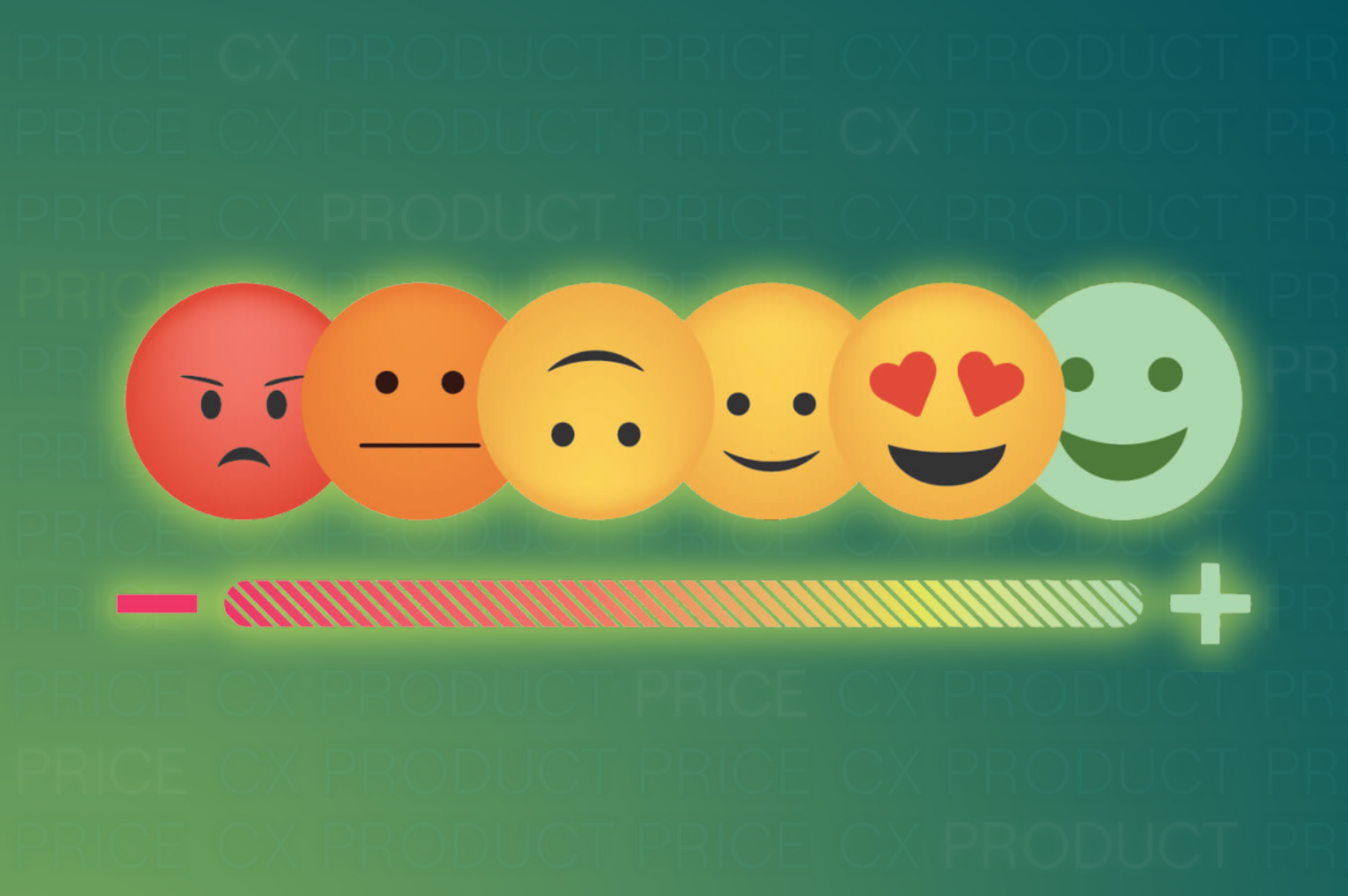How Brands Are Winning with Customer Experience Over Price and Product
Matthew Patchett

As 2024 commences, I reflect on Reputation’s webinar with Concentrix + Webhelp, which brought to mind a compelling prediction from a Walker study: “By 2020, brands will compete on customer experience rather than price or product.” Such a profound shift in focus highlights the growing significance of CX in shaping the competitive edge of brands.
So, has this prediction come to fruition?
- Decisive Verdict: Embracing the Reality of Customer Expectations
- Understanding Customer Expectations: The Core of CX Strategy
- Why Have Customer Expectations Increased?
- Why Are Online Reviews So Important?
- CX Programme Design Top Tips
- Putting Customer Feedback to Work: How Reputation Can Help
Decisive Verdict: Embracing the Reality of Customer Expectations
I’ve gone back and forth on whether I think the statement is now a reality. After much deliberation, I believe the answer is ‘yes’. Why? One word – expectation.
Understanding Customer Expectations: The Core of CX Strategy
Customer Experience (CX) involves assessing the alignment between customer expectations and their actual experiences. Various factors shape these expectations, such as marketing efforts, social media, brand promises, personal experiences, and the experiences of friends and family.
For instance, budget airlines intentionally set low expectations due to their no-frills approach. Passengers anticipate a basic service when paying for the cheapest fares. Nonetheless, these businesses still vie for customers and seek to retain them, as CX impacts consumer choices.
When I visit a franchised vehicle servicing centre, I expect more than at a non-franchised one, despite the higher cost. I anticipate a welcoming reception, upscale amenities like a fancy coffee machine, Wi-Fi, comfortable seating, and video demonstrations of necessary repairs. Failing to meet these expectations leaves me feeling unsatisfied with the experience.
As customer expectations continually rise, the significance of CX grows. These expectations heavily influence perceptions of a product or service and its price.
Why Have Customer Expectations Increased?
Digital transformation means that you now can’t escape online reviews. If you’re online searching for a product or a service, then it’s highly likely that previous customers have left a review. Because of these reviews, customers can benchmark you against other businesses in your industry and those outside of it. Plus 5 stars is a universal metric, so everybody knows what good and bad looks like (social media also massively helps with this, as information is so accessible with a picture being worth thousands of words).
Why Are Online Reviews So Important?
It’s all about making it easier for consumers to find you. The more reviews you have, the more you respond to reviews, and the more recent your reviews are, the higher you’ll appear within Google’s search results. This is critical to customer acquisition. We know from our Automotive Reputation Report that customers will scroll past businesses that score below 4 stars and will travel up to 20 additional miles to a dealership that has a positive online reputation. First impressions count more than ever especially as the volume of online reviews continues to grow.
CX Programme Design Top Tips
Here are my top, and hopefully helpful, tips to consider when designing your own CX programme:
- Think about how you market your business and design a CX strategy that aligns with this. The more that you say you can offer, the greater the expectation you are setting.
- Educate and inform staff. Set the standards that you want staff to adhere to. Induct new starters properly. What is your CX strategy, why is it important, and how will they support this?
- Look at your competitors. What will differentiate you from them? What low-cost, high-impact initiatives/processes can you implement to help surprise and delight customers?
- The theory of CX is relatively straightforward, but making it happen and consistently delivering is not so straightforward. Establish a governance framework that ensures relentless focus.
- Focus on both solicited (surveys) and unsolicited (online reviews) when it comes to customer feedback. Create a 360° view so that you know you’re focusing on the right things.
Putting Customer Feedback to Work: How Reputation Can Help
At Reputation, our experience has shown that growth is driven by feedback. Our clients choose us because we offer a unique software platform that not only manages but also actively leverages feedback to enhance both customer acquisition and loyalty.
Our team, comprised of seasoned CX experts with experience at major global brands, understands your challenges. They are equipped to assess your performance in CX strategies and to assist in crafting a program that brings about meaningful change in your business. Get your CX primed for 2024 by connecting with a CX specialist using our contact form here.
